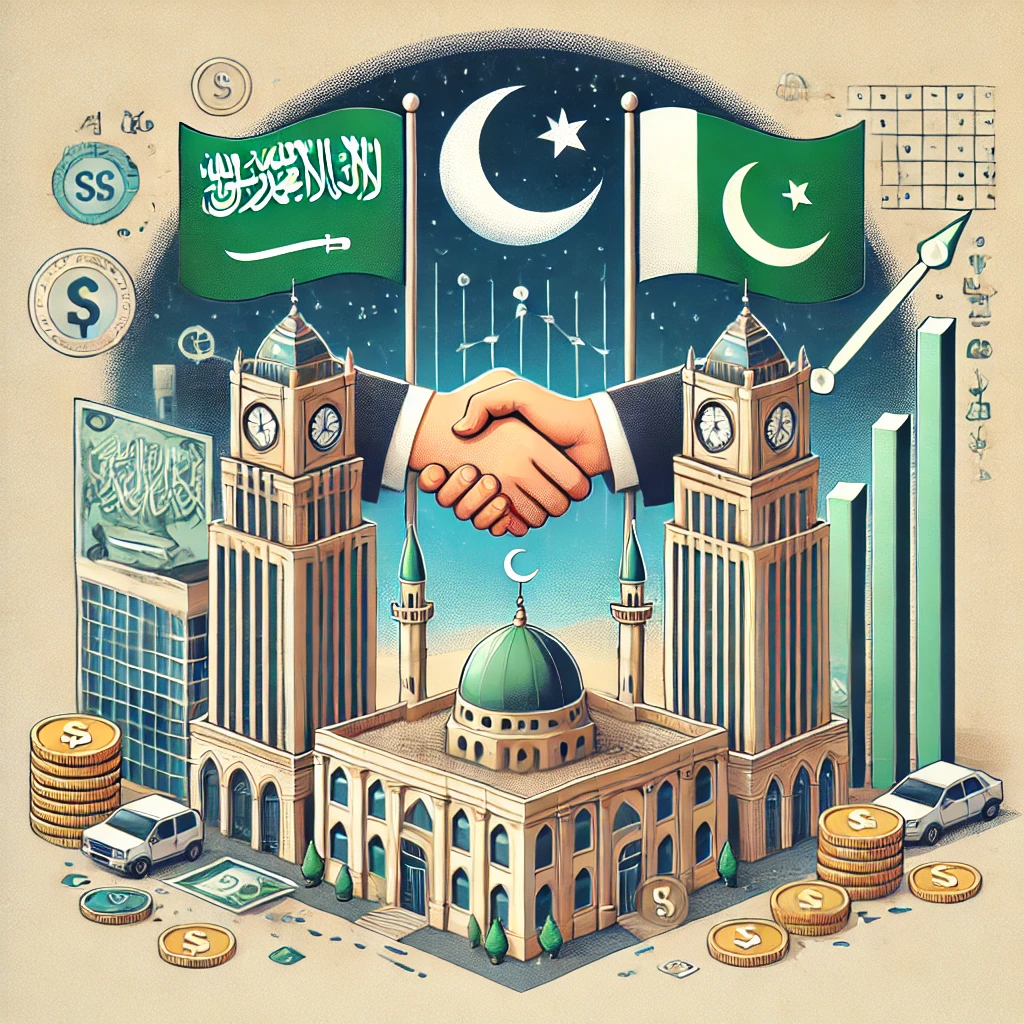Pakistan has received a one-year extension on the repayment of a $3 billion loan from Saudi Arabia. By providing temporary relief for its struggling economy. The extension comes as the cash-strapped nation continues to face mounting debt challenges and risks of default.
Debt Extension Brings Temporary Relief
Saudi Arabia originally placed the $3 billion deposit in 2021 and has rolled it over twice since then. This third extension highlights Saudi Arabia’s continued support for Pakistan. The Saudi Fund for Development extended the repayment period by another year after the deposit’s maturity date of December 5, 2024.
The State Bank of Pakistan (SBP) acknowledged the extension. By stating it would bolster the country’s foreign exchange reserves. These reserves play a crucial role in stabilizing the economy by supporting imports and maintaining the value of the Pakistani rupee.
Future Repayments Loom Large
Despite the extension, Pakistan faces significant financial challenges in the coming months. The government must repay approximately $13 billion by June 2025 to its three major bilateral creditors: Saudi Arabia, China, and the United Arab Emirates (UAE). This includes another $2 billion deposit from Saudi Arabia. It is set to mature in mid-June 2025, which Pakistan is expected to seek another rollover for.
China: Pakistan’s Largest Lender
China remains Pakistan’s largest creditor, with nearly $29 billion in loans. Over the next six months, Pakistan is required to repay $8 billion to China. This includes $2 billion in cash deposits due in March, a $500 million commercial loan in March, another $500 million in April, and $2.4 billion in June.
Pakistan has also requested China to reschedule $3.4 billion in project-related debt over the next two years. These repayments are critical for Pakistan to bridge the $5 billion external financing gap identified during the signing of its recent International Monetary Fund (IMF) bailout program.
Debt Structure and Growing Challenges
Pakistan’s total external debt reached $131 billion by the end of 2023, according to the World Bank’s International Debt Report. Nearly half of this debt is owed to bilateral creditors, with China and Saudi Arabia as the largest lenders. The remaining debt is owed to multilateral institutions like the World Bank and the Asian Development Bank.
The report highlighted that Pakistan’s debt servicing accounts for 43% of its total exports, making it one of the largest interest-paying nations in the region. These high debt repayments and growing interest rates continue to worsen Pakistan’s financial burden.
IMF Loans Offer Limited Support
While Pakistan has secured an IMF bailout program, the loans have done little to attract significant new lending. The State Bank of Pakistan has been forced to buy dollars from the market, artificially keeping the exchange rate higher to manage reserves.
Unlike bilateral creditors, Pakistan has been repaying its loans to multilateral institutions like the World Bank and IMF on time. This selective repayment approach has been necessary to maintain credibility with global financial institutions but adds to the overall debt burden.
Economic Challenges Persist
Pakistan’s strategy of avoiding formal debt restructuring has only compounded its financial issues. By rolling over loans instead of paying them back, the country has seen its debt stock grow, along with mounting interest payments.
At the same time, the government struggles to attract foreign investment and boost exports, both of which are essential for economic stability. With the IMF identifying significant financing gaps, Pakistan must rely heavily on extensions and rescheduling agreements with its major creditors to avoid default.
The Road Ahead
While the extension of the $3 billion Saudi loan provides temporary relief, Pakistan’s financial woes are far from over. With billions in repayments due in the next six months, the government must navigate a challenging economic landscape. Long-term solutions, including structural reforms and revenue generation, remain critical for ensuring economic stability.
For now, the support from allies like Saudi Arabia and China offers a lifeline to prevent immediate default, but the country’s reliance on such measures underscores the urgent need for sustainable economic reforms.

